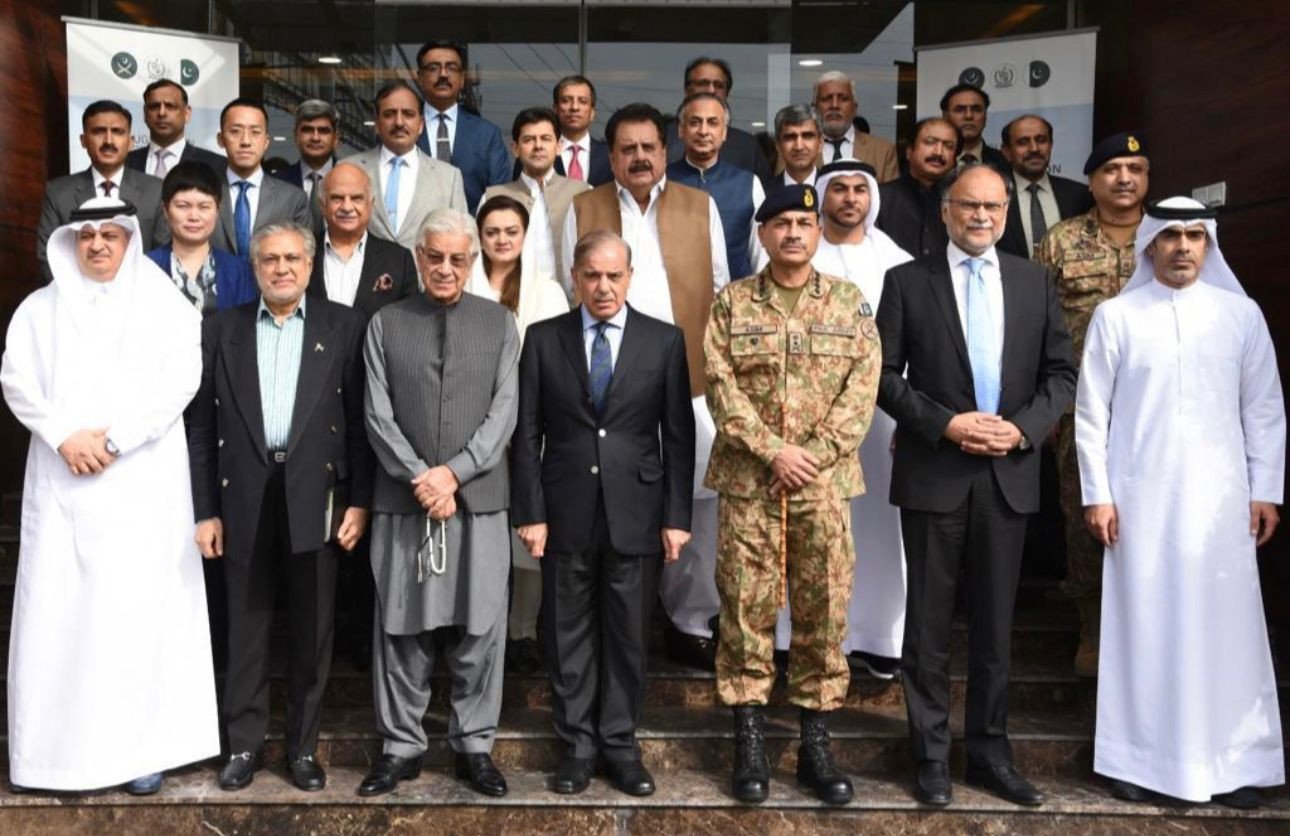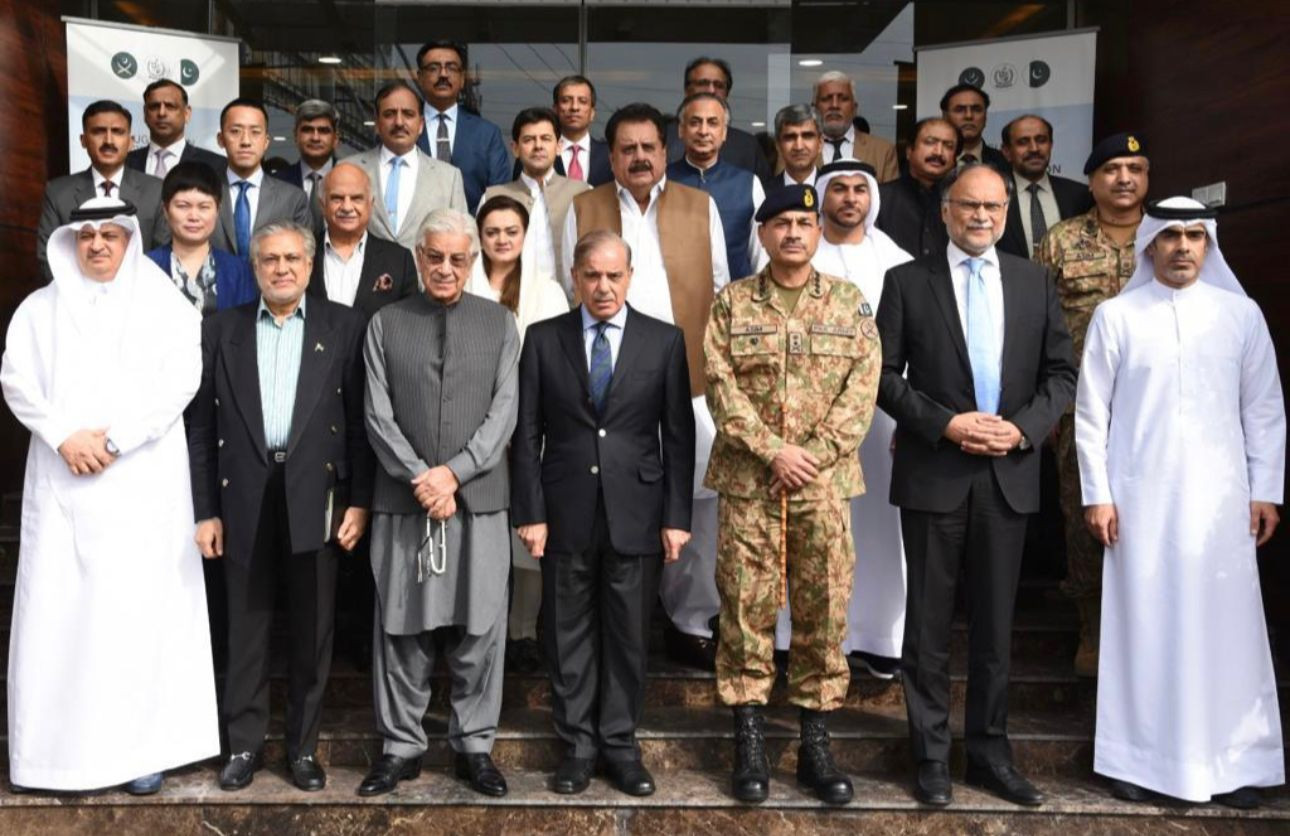ghazi52
PDF THINK TANK: ANALYST

- Joined
- Mar 21, 2007
- Messages
- 103,993
- Reaction score
- 106
- Country
- Location
.,.,
Rizwan Shehzad
July 07, 2023

According to the World Food Programme, 36.9 per cent of Pakistanis are food insecure and 18.3 per cent of these are facing severe food crisis. PHOTO: EXPRESS
Pakistan’s civil and military leaders joined hands on Friday to tackle the pressing issues of food insecurity, malnutrition, and soaring import costs in the agriculture sector.
The groundbreaking solution of Prime Minister Shehbaz Sharif and Chief of Army Staff (COAS) General Asim Munir, among others, came in the form of the Land Information and Management System – Centre of Excellence (LIMS-COE).
The endeavour aims to transform unproductive acres, ensure food security, boost agricultural exports, and lighten the load on the national economy.
The inauguration ceremony of LIMS – COE was attended by the prime minister, COAS, ministers of finance, defence, planning, information and others.
The chief secretaries of the provincial governments, agricultural experts, senior army officials and several other key officials of the other countries were also present on the occasion.
“Establishment of LIMS is the first exceptional initiative, aimed at enhancing food security and improving agri exports thus reducing import burden on the national exchequer,” read the official statement issued by the PM Office, adding that the initiative would help transform millions of acres of uncultivated or low yield land within the country.
“This state-of-the-art system will help optimise the agricultural production through innovative technologies and sustainable precision agricultural practices based on the agroecological potential of land,” the statement added, saying the system would ensure the well-being of rural communities and the preservation of the environment.
According to the World Food Programmed, 36.9 per cent of Pakistanis are food insecure and 18.3 per cent of these are facing severe food crisis.
Cognisant of the prevailing food insecurity, the statement continued, mass malnutrition and widening import bill of agri-related products vis-à-vis projected population growth and future domestic food needs, “the national political, economic and military leadership has decided to undertake the decisive and meaningful steps to address this critical issue.”
The GIS-based LIMS will greatly improve the national agri yield by systemising digitisation of agriculture, it said, providing real-time information to local farmers about soil, crops, weather, water resource and pest monitoring through remote sensing and geospatial technologies as well as minimising the role of middlemen through efficient marketing system.
The LIMS-COE initiative has come on the heels of the civil-military leadership presenting an “Economic Revival Plan” on June 20, which was stated to be bigger than the China-Pakistan Economic Corridor (CPEC), to address the nation’s continued struggles with growth.
The government had established a Special Investment Facilitation Council (SIFC) under the economic recovery plan, which would serve as a streamlined interface for investors and remove all the bottlenecks in investments with the help of the army.
The army-backed plan was focused on harnessing the country’s untapped potential in key sectors through local development and foreign investments mainly from Gulf countries and expediting project implementation.
Just before the government is about to complete its five-year constitutional term and the country is about to go for general elections, this is the second initiative where the civil-military leadership has come united to move ahead.
On a previous occasion, the plan was unveiled during an event, which was chaired by PM Shehbaz and attended by the COAS at the Prime Minister's House.
The prime minister had stressed the need for export-oriented foreign direct investments (FDIs) while the army chief pledged the full support of the military, recognising the plan’s importance for national prosperity.
The plan envisages capitalising Pakistan’s untapped potential in key sectors of defence production, agriculture, livestock, minerals and mining, information technology and energy, through indigenous development as well as investments from friendly countries.

 tribune.com.pk
tribune.com.pk
PM, COAS vow to address food insecurity, boost agri exports
Govt launches Land Information and Management System – Centre of Excellence – to transform unproductive landRizwan Shehzad
July 07, 2023

According to the World Food Programme, 36.9 per cent of Pakistanis are food insecure and 18.3 per cent of these are facing severe food crisis. PHOTO: EXPRESS
Pakistan’s civil and military leaders joined hands on Friday to tackle the pressing issues of food insecurity, malnutrition, and soaring import costs in the agriculture sector.
The groundbreaking solution of Prime Minister Shehbaz Sharif and Chief of Army Staff (COAS) General Asim Munir, among others, came in the form of the Land Information and Management System – Centre of Excellence (LIMS-COE).
The endeavour aims to transform unproductive acres, ensure food security, boost agricultural exports, and lighten the load on the national economy.
The inauguration ceremony of LIMS – COE was attended by the prime minister, COAS, ministers of finance, defence, planning, information and others.
The chief secretaries of the provincial governments, agricultural experts, senior army officials and several other key officials of the other countries were also present on the occasion.
“Establishment of LIMS is the first exceptional initiative, aimed at enhancing food security and improving agri exports thus reducing import burden on the national exchequer,” read the official statement issued by the PM Office, adding that the initiative would help transform millions of acres of uncultivated or low yield land within the country.
“This state-of-the-art system will help optimise the agricultural production through innovative technologies and sustainable precision agricultural practices based on the agroecological potential of land,” the statement added, saying the system would ensure the well-being of rural communities and the preservation of the environment.
According to the World Food Programmed, 36.9 per cent of Pakistanis are food insecure and 18.3 per cent of these are facing severe food crisis.
Cognisant of the prevailing food insecurity, the statement continued, mass malnutrition and widening import bill of agri-related products vis-à-vis projected population growth and future domestic food needs, “the national political, economic and military leadership has decided to undertake the decisive and meaningful steps to address this critical issue.”
The GIS-based LIMS will greatly improve the national agri yield by systemising digitisation of agriculture, it said, providing real-time information to local farmers about soil, crops, weather, water resource and pest monitoring through remote sensing and geospatial technologies as well as minimising the role of middlemen through efficient marketing system.
The LIMS-COE initiative has come on the heels of the civil-military leadership presenting an “Economic Revival Plan” on June 20, which was stated to be bigger than the China-Pakistan Economic Corridor (CPEC), to address the nation’s continued struggles with growth.
The government had established a Special Investment Facilitation Council (SIFC) under the economic recovery plan, which would serve as a streamlined interface for investors and remove all the bottlenecks in investments with the help of the army.
The army-backed plan was focused on harnessing the country’s untapped potential in key sectors through local development and foreign investments mainly from Gulf countries and expediting project implementation.
Just before the government is about to complete its five-year constitutional term and the country is about to go for general elections, this is the second initiative where the civil-military leadership has come united to move ahead.
On a previous occasion, the plan was unveiled during an event, which was chaired by PM Shehbaz and attended by the COAS at the Prime Minister's House.
The prime minister had stressed the need for export-oriented foreign direct investments (FDIs) while the army chief pledged the full support of the military, recognising the plan’s importance for national prosperity.
The plan envisages capitalising Pakistan’s untapped potential in key sectors of defence production, agriculture, livestock, minerals and mining, information technology and energy, through indigenous development as well as investments from friendly countries.

PM, COAS join hands to address food security | The Express Tribune
Vow to tackle food insecurity, boost agri exports
 tribune.com.pk
tribune.com.pk







